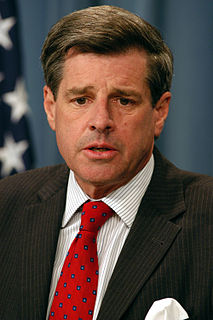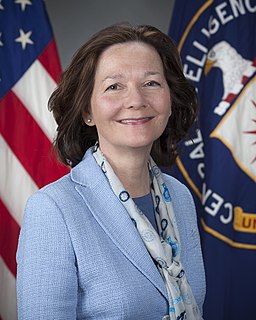A Quote by Paul Bremer
If you look back today over the last 25 years, it is a fact that we have had a progressive degeneration of our intelligence community in general; in particular in the field of human intelligence.
Related Quotes
When I talked to [Donald Trump] about - our intelligence agencies, what I've said to him is - is that there are gonna be times where you've got raw intelligence that comes in and in my experience, over eight years, the intelligence community is pretty good about saying, "Look, we can't say for certain what this means." But there are gonna be times where the only way you can make a good decision is if you have confidence that the process is working, and the people that you put in charge are giving you their very best assessments.
The intelligence community's 2002 National Intelligence Estimate (NIE) stated, in a formal presentation to President Bush and to Congress, its view that Saddam had weapons of mass destruction - a belief in which the NIE said it held a 90% level of confidence. That is about as certain as the intelligence community gets on any subject.
Within a few decades, machine intelligence will surpass human intelligence, leading to The Singularity -- technological change so rapid and profound it represents a rupture in the fabric of human history. The implications include the merger of biological and nonbiological intelligence, immortal software-based humans, and ultra-high levels of intelligence that expand outward in the universe at the speed of light.
Human beings have a variety of intelligences, such as cognitive intelligence, emotional intelligence, musical intelligence, kinesthetic intelligence, and so on. Most people excel in one or two of those, but do poorly in the others. This is not necessarily or even usually a bad thing; part of Integral wisdom is finding where one excels and thus where one can best offer the world one's deepest gifts.










































